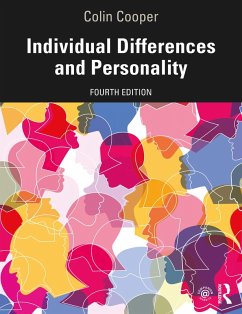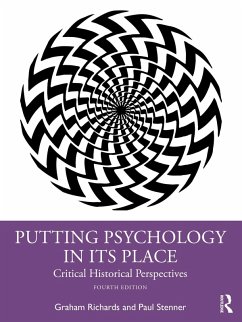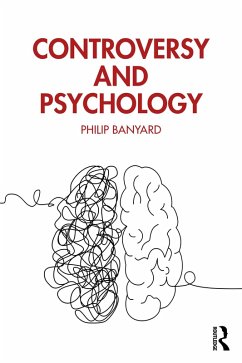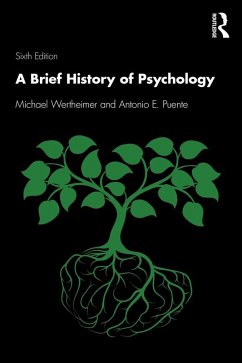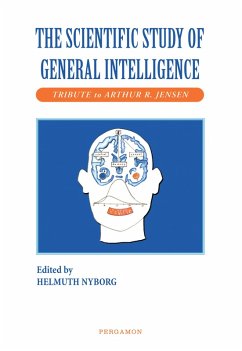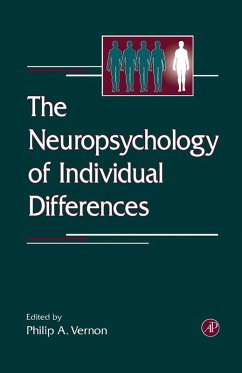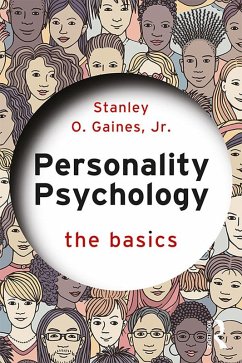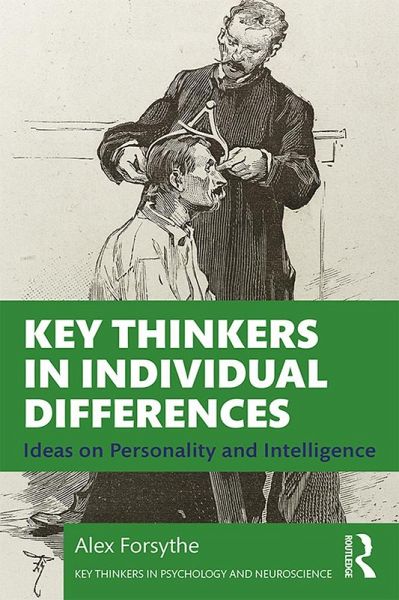
Key Thinkers in Individual Differences (eBook, PDF)
Ideas on Personality and Intelligence
Versandkostenfrei!
Sofort per Download lieferbar
21,95 €
inkl. MwSt.
Weitere Ausgaben:

PAYBACK Punkte
11 °P sammeln!
Key Thinkers in Individual Differences introduces the life, work and thought of 25 of the most influential figures who have shaped and developed the measurement of intelligence and personality. Expanding on from a résumé of academic events, this book makes sense of these psychologists by bringing together not only their ideas but the social experiences, loves and losses that moulded them.By adapting a chronological approach, Forsythe presents the history and context behind these thinkers, ranging from the buffoonery and sheer genius of Charles Galton, the theatre of Hans Eysenck and John Phi...
Key Thinkers in Individual Differences introduces the life, work and thought of 25 of the most influential figures who have shaped and developed the measurement of intelligence and personality. Expanding on from a résumé of academic events, this book makes sense of these psychologists by bringing together not only their ideas but the social experiences, loves and losses that moulded them.
By adapting a chronological approach, Forsythe presents the history and context behind these thinkers, ranging from the buffoonery and sheer genius of Charles Galton, the theatre of Hans Eysenck and John Phillipe Rushton, to the much-maligned and overlooked work of women such as Isabel Myers, Katherine Briggs and Karen Horney. Exploring all through a phenomenological lens, the background, interconnections, controversies and conversations of these thinkers are uncovered.
This informative guide is essential reading to anyone who studies, works in or is simply captivated by the field of individual differences, personality and intelligence. An invaluable resource for all students of individual differences and the history of psychology.
By adapting a chronological approach, Forsythe presents the history and context behind these thinkers, ranging from the buffoonery and sheer genius of Charles Galton, the theatre of Hans Eysenck and John Phillipe Rushton, to the much-maligned and overlooked work of women such as Isabel Myers, Katherine Briggs and Karen Horney. Exploring all through a phenomenological lens, the background, interconnections, controversies and conversations of these thinkers are uncovered.
This informative guide is essential reading to anyone who studies, works in or is simply captivated by the field of individual differences, personality and intelligence. An invaluable resource for all students of individual differences and the history of psychology.
Dieser Download kann aus rechtlichen Gründen nur mit Rechnungsadresse in A, B, BG, CY, CZ, D, DK, EW, E, FIN, F, GR, HR, H, IRL, I, LT, L, LR, M, NL, PL, P, R, S, SLO, SK ausgeliefert werden.






